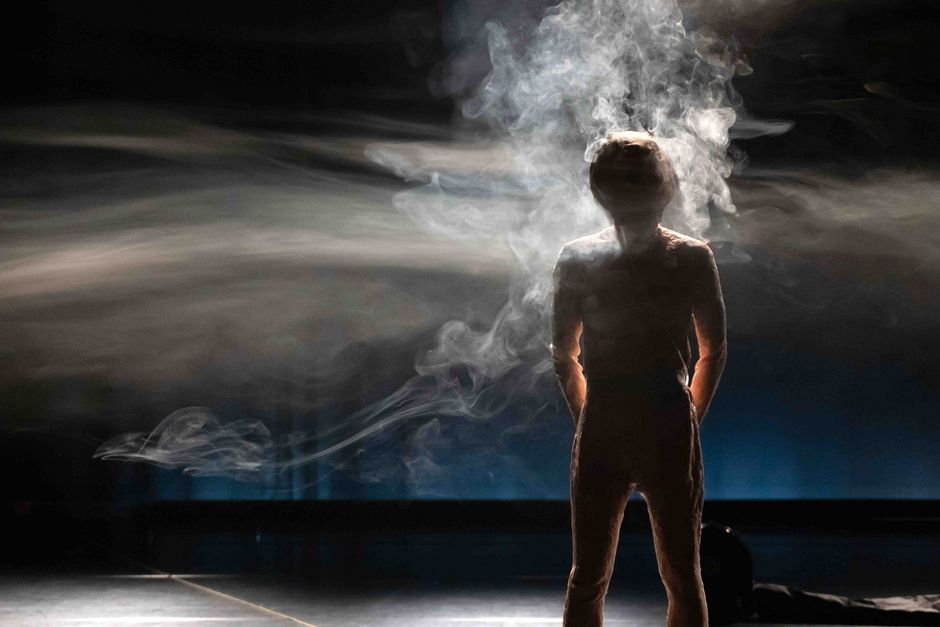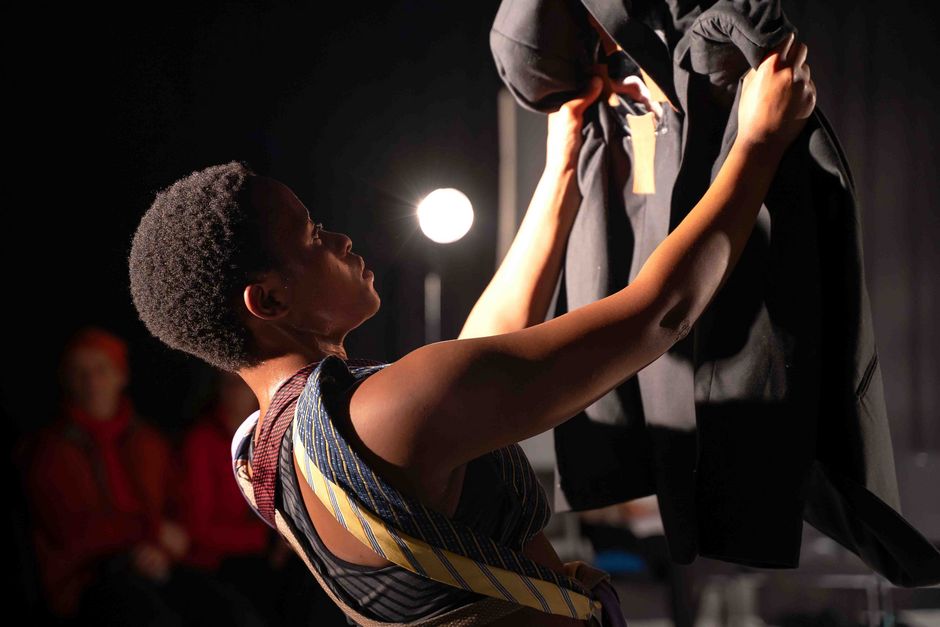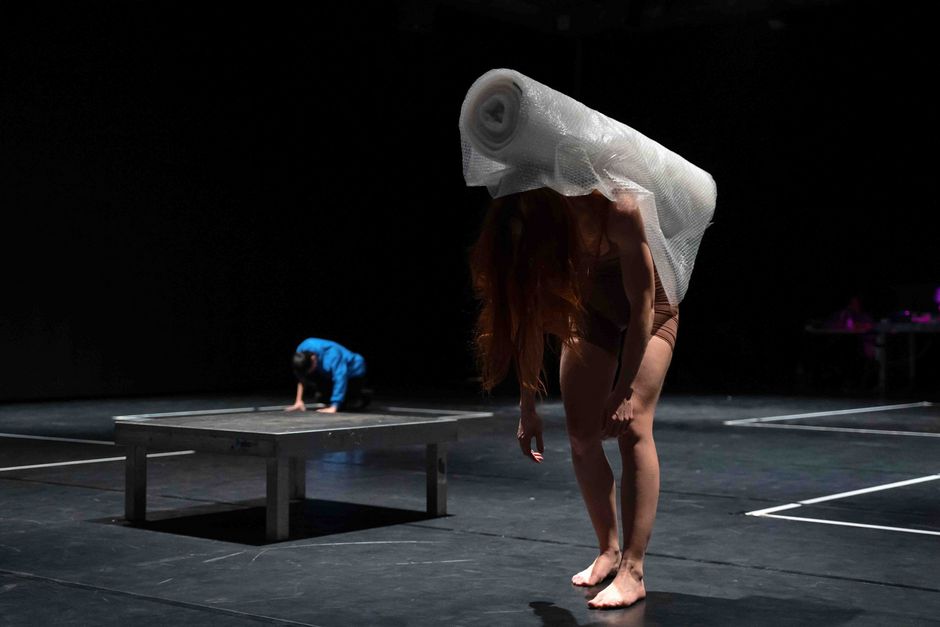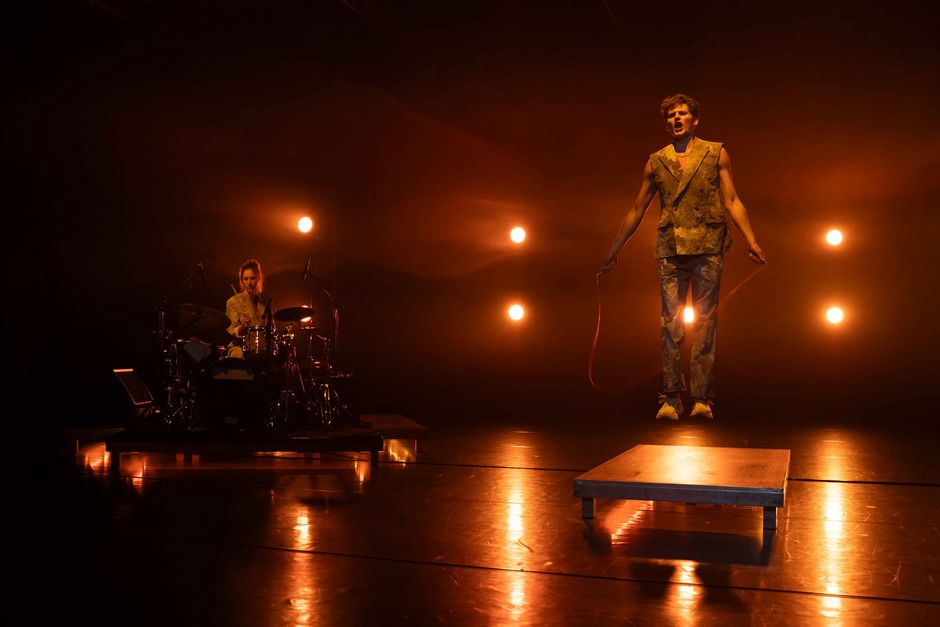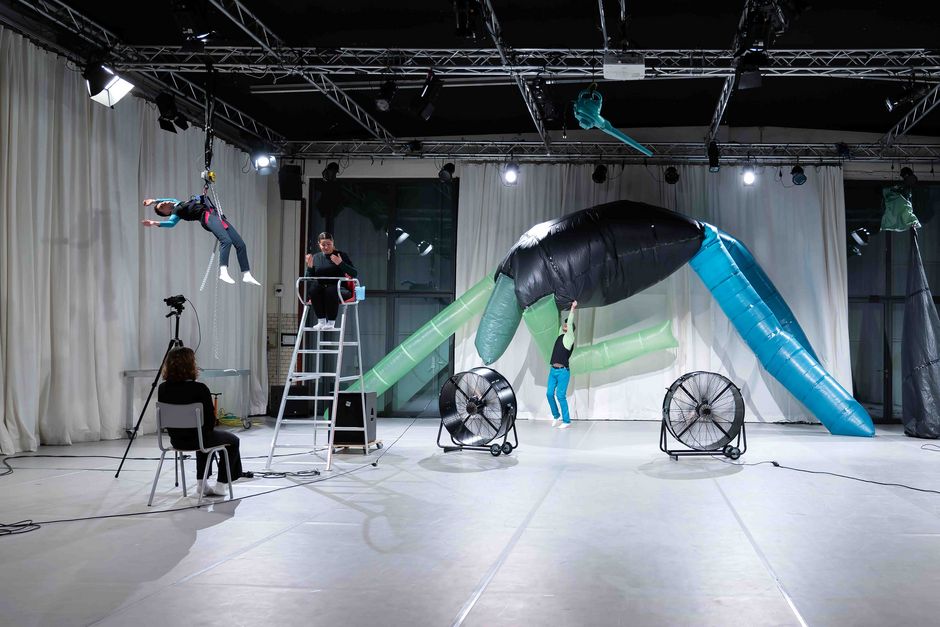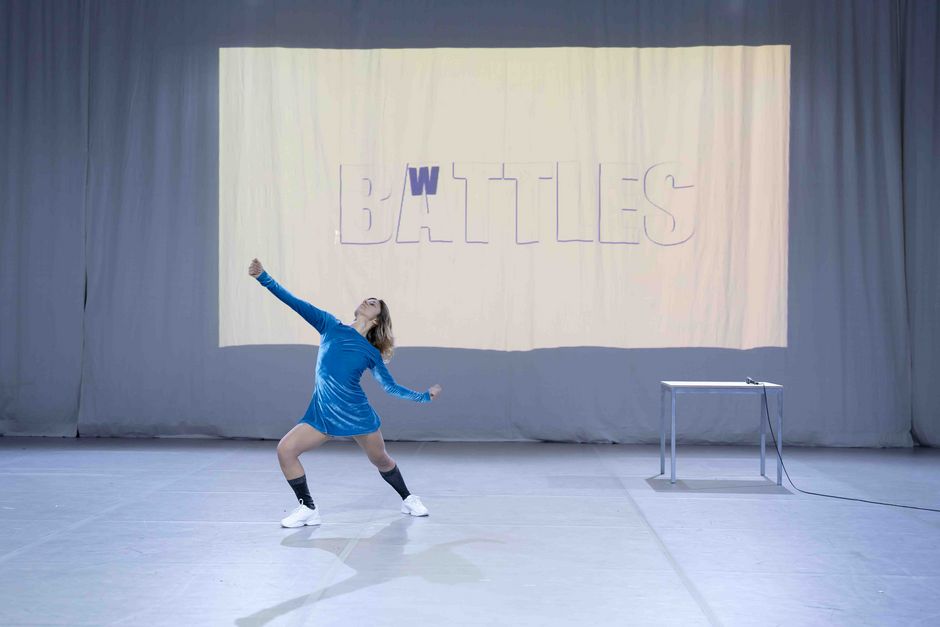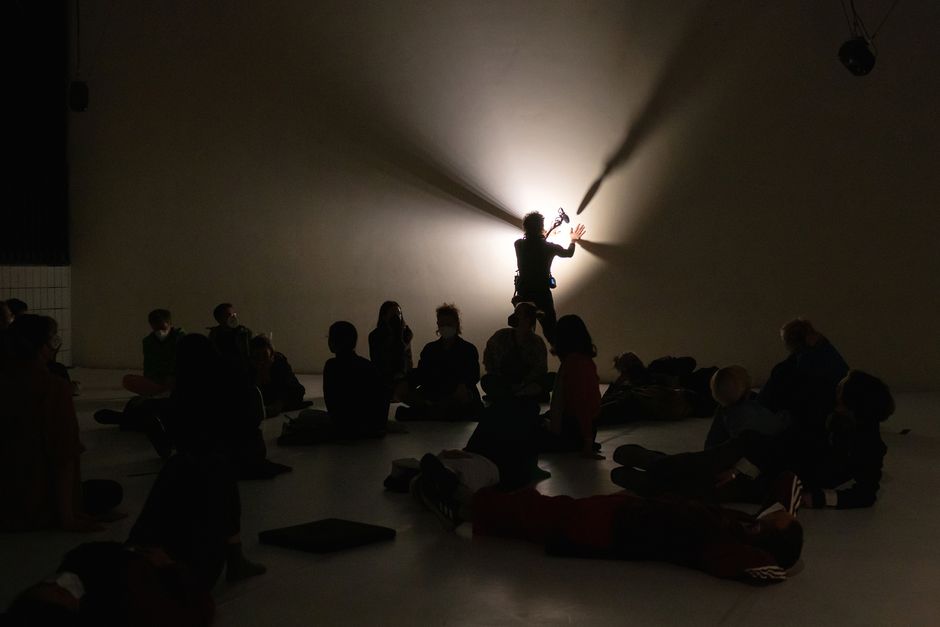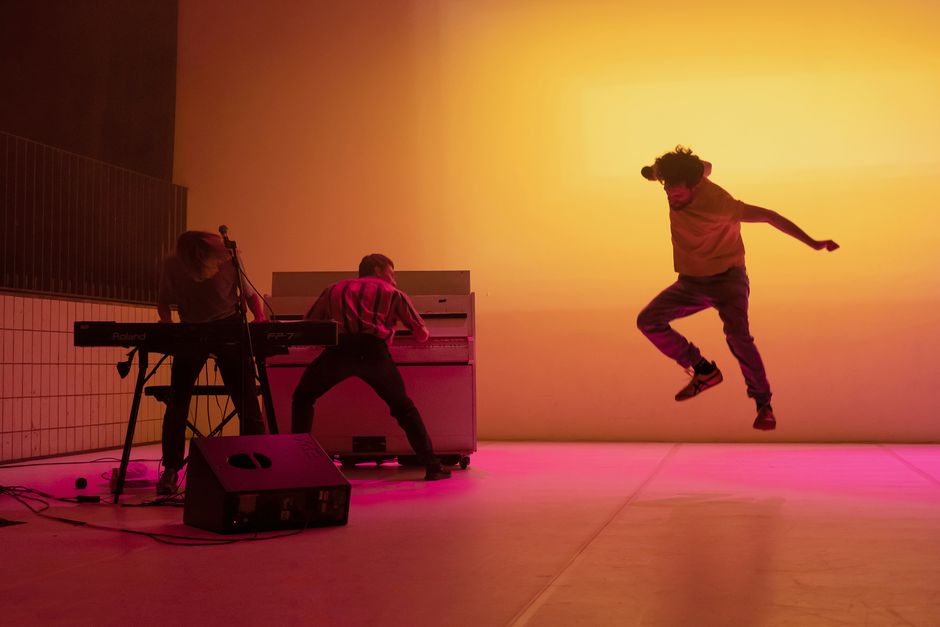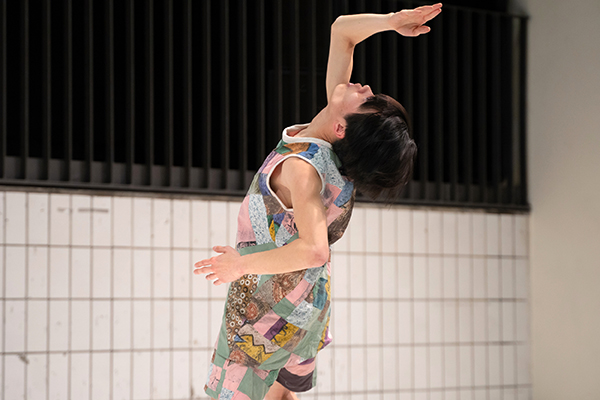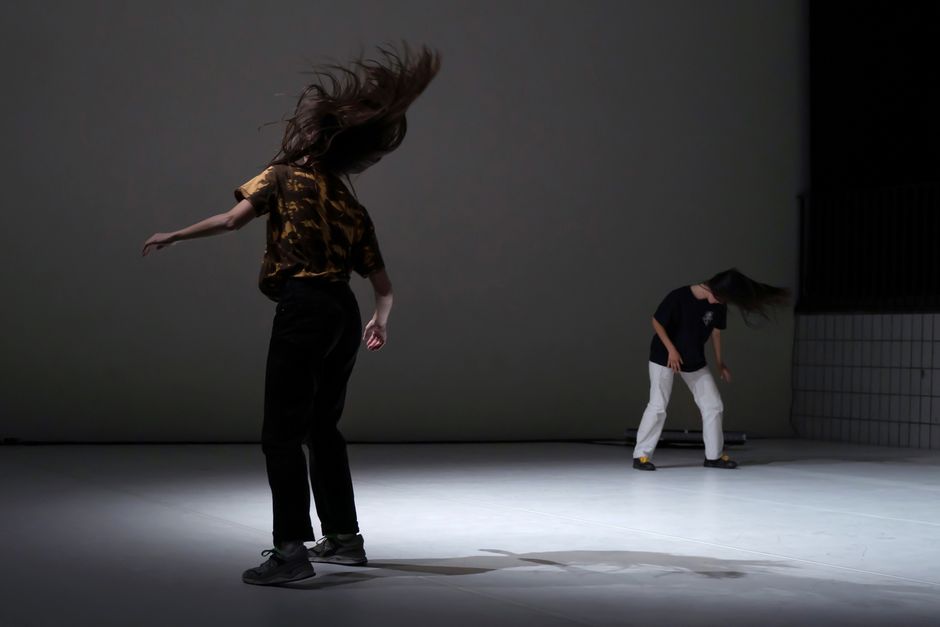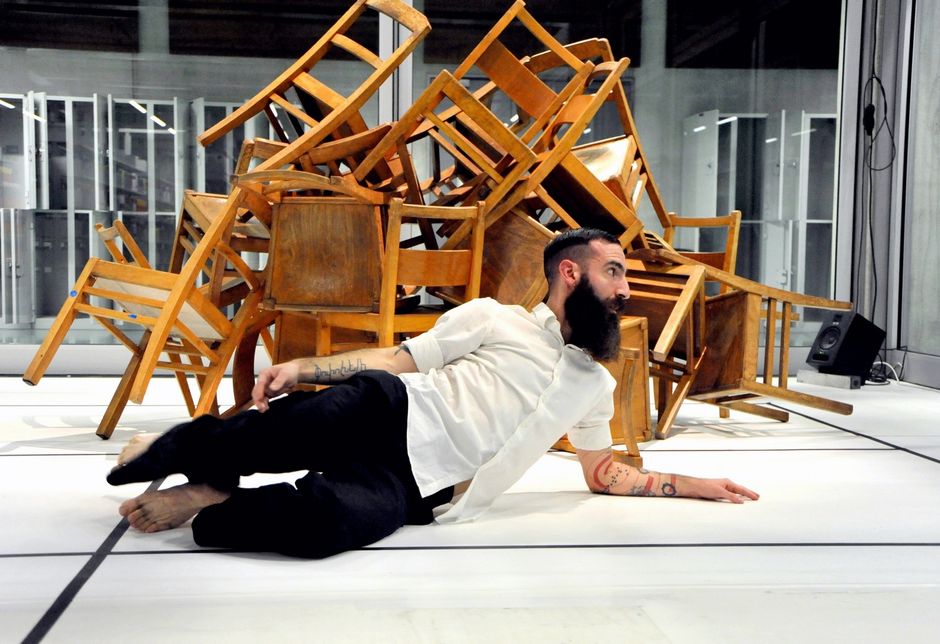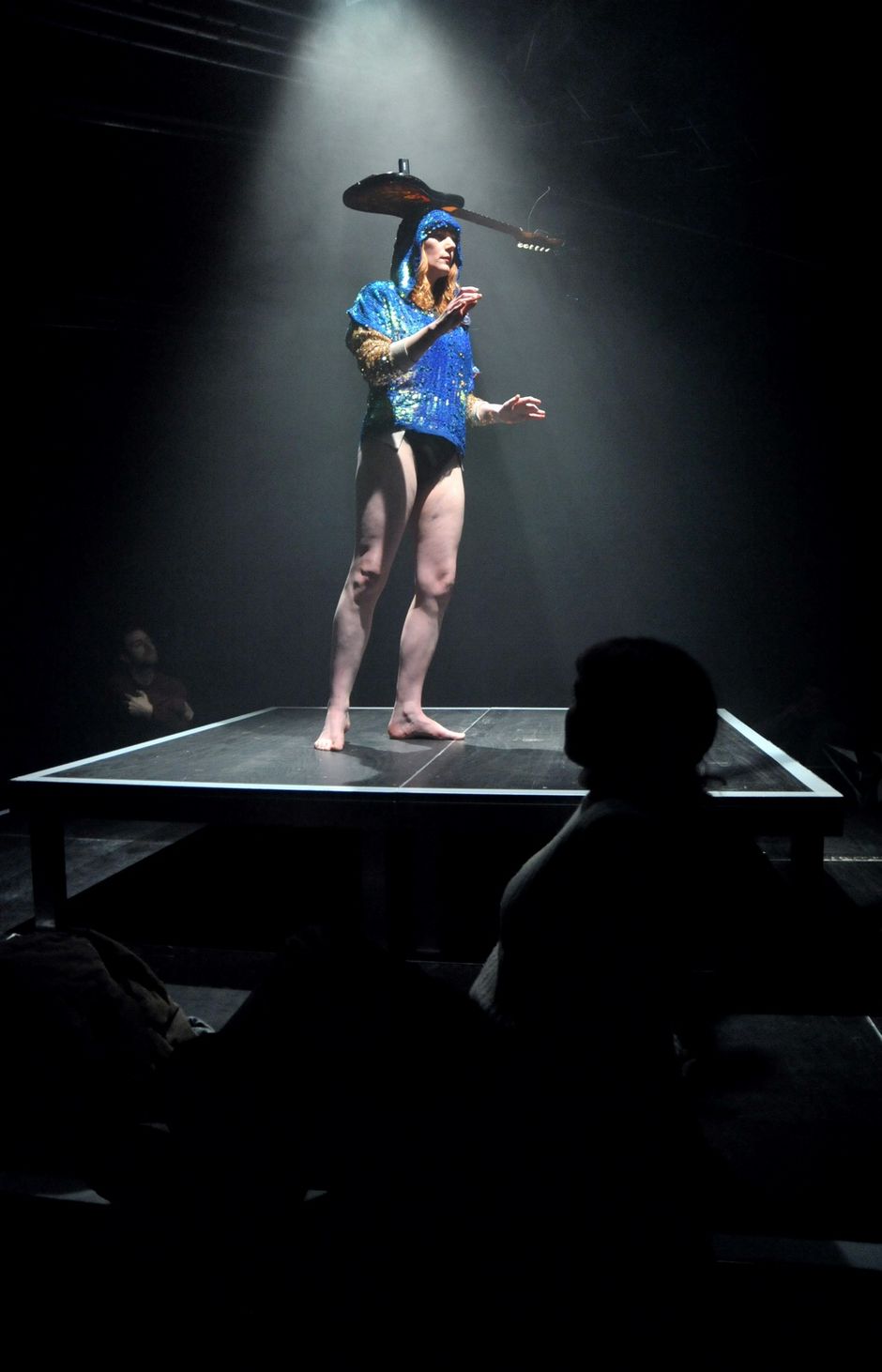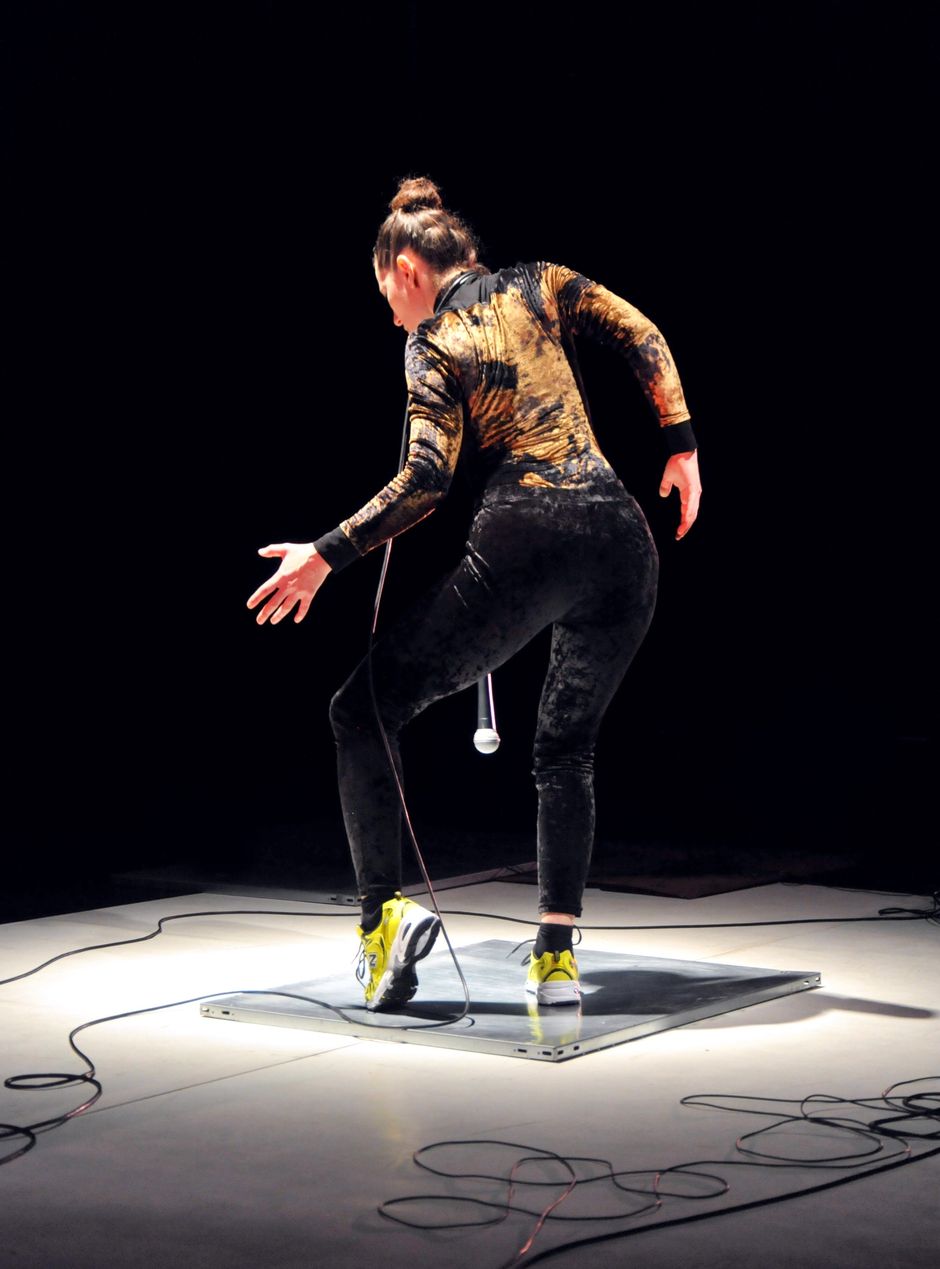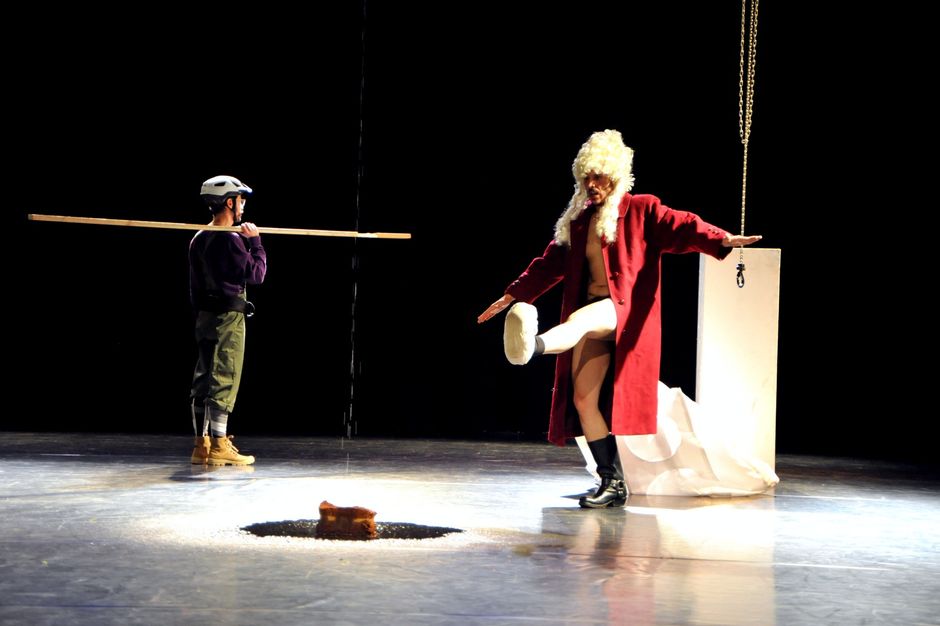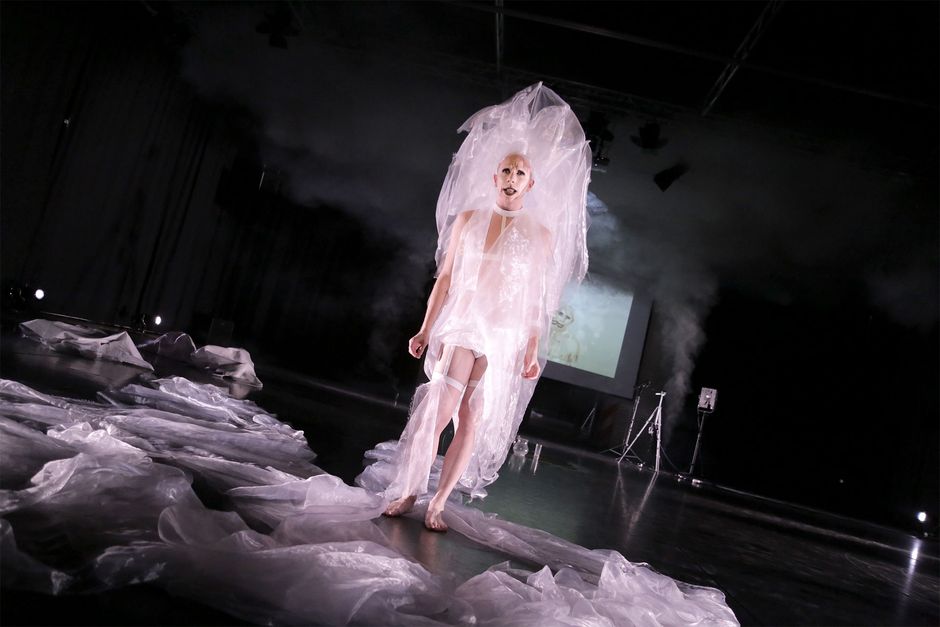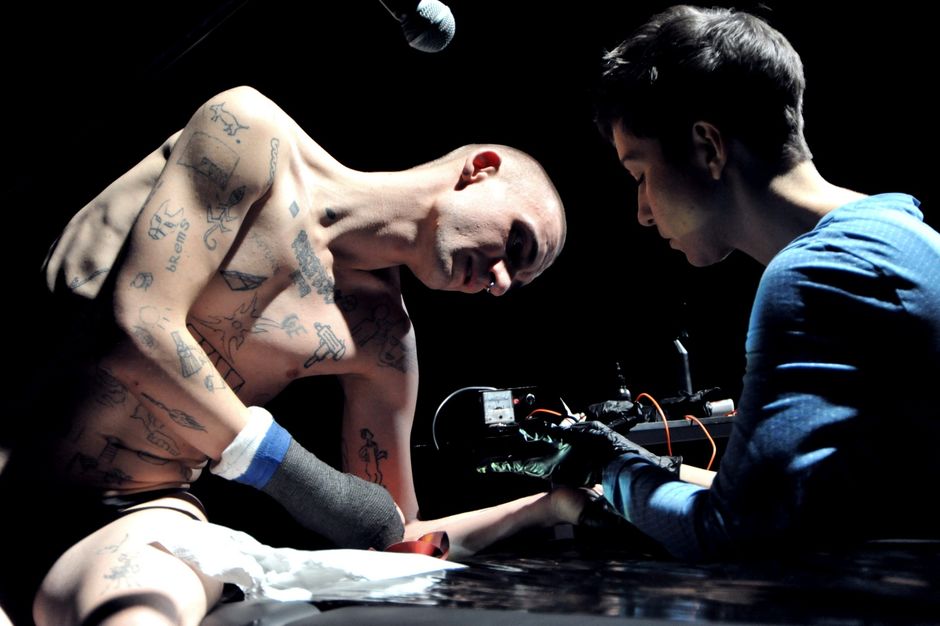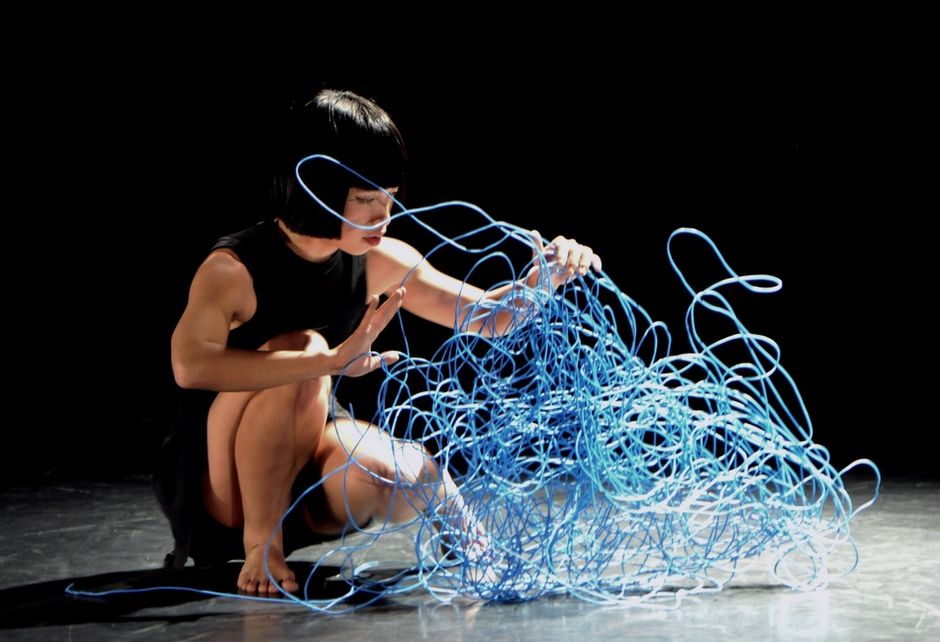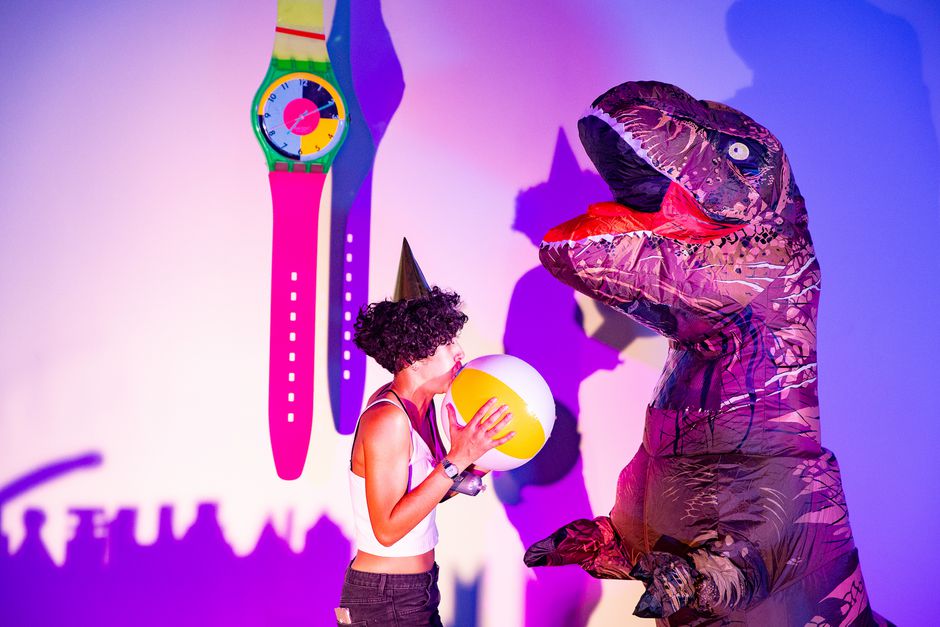MA Solo/Dance/Authorship (SODA)
Master of Arts
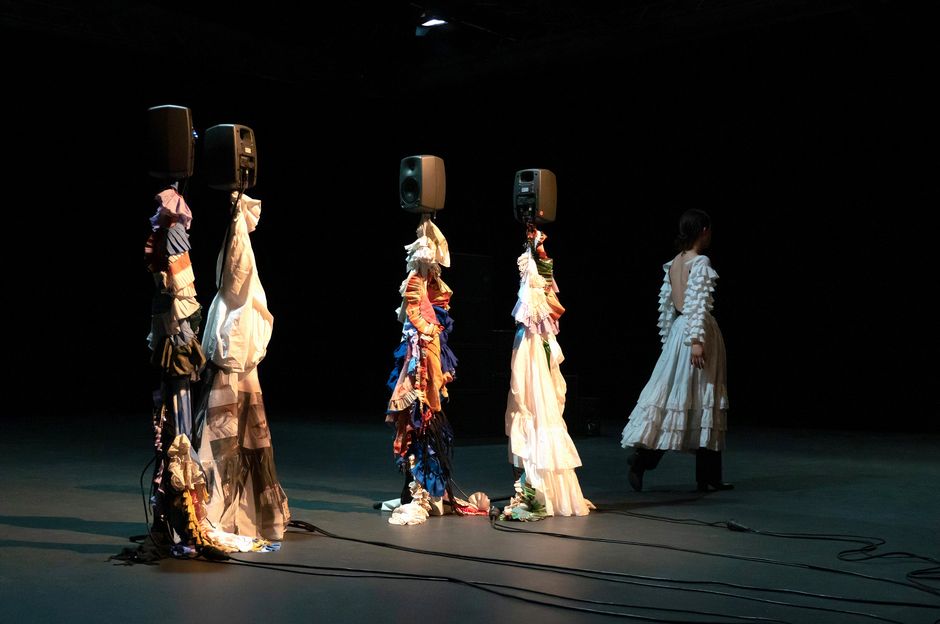
Application period and entrance requirements
15th January – 28th Feburary 2024 for the next summer semester 2025
All further information and the application documents can be found on the website of the Universität der Künste Berlin >
The MA Solo/Dance/Authorship (SODA) is a practice-led master’s degree that explores body- and movement-based performative practice within a two-year, full-time program focused on students’ individual research trajectories. It seeks to provide a transdisciplinary frame for graduates and professionals who wish to challenge, extend and transform their artistic practice within an academic structure. A lively and supportive environment encourages students to develop their specific realities and concerns through different research approaches in and beyond the arts.
A body-based approach to research is needed now more than ever due to the increasing complexity of contemporary life. Considering the body simultaneously as witness, document, and agent, MA SODA asks what kinds of artistic, political and theoretical strategies can be developed.
Drawing on the diversity of practices brought to the HZT by students from a range of backgrounds, MA SODA concerns itself with the intersection of aesthetics, politics, and ethics. A critical awareness of existing systems and practices of knowledge production in relation to the body is at the core of our approach. This requires an engagement with existing geopolitical, economic and symbolic hegemonies.
MA SODA is designed for students to undertake consistent and structured development of their body-based research. This is done in dialogue with other artists, thinkers and practitioners through a variety of formats. With particular focus on situating, writing, and speaking about one’s artistic practice, MA SODA helps students to frame, document and present their work within a public context.
MA SODA includes a broad spectrum of international guest lecturers as well as members of the independent Berlin art scene. The program is taught in English.
Information on Application
Application period and entrance requirements
15 th January – 28th Feburary 2023 for the next summer semester 2024
Your application procedure step by step
All further information and the application documents can be found on the website of the Universität der Künste Berlin >
The MA SODA study course is divided into six modules over four semesters
Semester 1/ Module 101: Questions of Practice 1
Diagnostics/ Writing & Research for Artists/ Making New Work (20 credits) takes three key approaches to making and thinking practice: diagnostics - the ability to share processes of making work; writing & research for artists - the ability to place practice in relation to language and identify and utilize appropriate research methods with which to develop practice; making new work - the ability to identify and develop new approaches to making and thinking practice. The module takes the student’s own practice-led and analytical account of engagement with choreographic/ performance processes and associated discourses as its starting point.
Semester 1/ Module 102
Negotiating Solo/Dance/Authorship - Lecture/ Seminar Series 1 (10 credits) explores the critical, contextual and theoretical understanding of key terms of the course in relation to individual students' development of practice and that of others. The first series of lectures/seminars addresses the contexts, implications and relationships of the key terms of the MA - 'solo', 'dance' and 'authorship' - in relation to contemporary arts practice and theory. The lectures are linked to seminars that involve reading and discussion of key works, performances and texts to establish a base for the critical discussion of individual work and a written paper.
Semester 2/ Module 201
Questions of Practice 2: Compositional Strategies & Tactics (20 credits) examines the work process of composition as research through artistic practice by exploring and testing various compositional strategies, tactics and work processes and analyzing the aesthetic and cultural contexts that make them possible and support them. Students continue to develop documentation and critical reflection in a workbook. At the end of the module, a formal proposal for independent and collaborative research in Semester 3 is submitted.
Semester 2/ Module 202
Compositional Practices & Contexts: Lecture/ Seminar Series 2 (10 credits) addresses questions of thinking and making contemporary practice in relation to the histories and strategies of 20th and 21st century compositional practice and contexts. The seminars involve reading and discussion of key works, performances and texts, and relating to the ongoing development of individual work through a written research paper.
Semester 3/ Module 301
Independent & Collaborative Research (30 credits): following an initial independent research proposal at the end of Semester 2, students embark on a sustained programme of individual research designed and structured in discussion with tutors. Research identifies and works with special areas of concern and with the acquisition of specific skills and knowledge. Students are invited to propose research mentors to accompany their progress and to be involved in collaborative research and curational projects during the semester.
Semester 4/ Module 401
Final SODA Project & Documentation (30 credits) involves the production of a work that engages with solo and/ or collaborative dance authorship, can be performed or presented in the public arena and meets conceptual, aesthetic and production criteria that apply in wider professional arts communities and/ or the cultural context for which the work is designed. Students prepare an initial proposal for their project at the end of Semester 3 that is negotiated and finalized with the core staff tutor and the project mentor toward the beginning of the final Semester 4. The Final Project documentation provides an opportunity for students to engage in detailed documentation and reflection on their work. The documentation takes the form of a substantial critical framing statement that positions the work in relation to the student's own experience and to wider cultural and aesthetic questions and conditions, and a final workbook devoted to the compositional, conceptual and contextual processes of the project.
FAQ
Yes. An online information session will be held on Wednesday 7 February 2024 from 14:00-15:00 CET. This will include an overview of the study program as well as time to have some of your questions answered. To attend, please email soda_support[at]hzt-berlin.de no later than 14:00 CET on 31 January 2024. You will receive a Zoom link and password.
If you cannot attend the information session and have general inquiries that are otherwise not answered on the HZT or UdK websites, please contact soda_support[at]hzt-berlin.de
You will find some general details regarding accessibility on the UdK website.
If you have further questions regarding accessibility, please feel welcome to contact us at accessibility[at]hzt-berlin.de.
There is no age restriction for applicants. MA SODA is open to all who wish to further develop their existing body-based performance work and research practices.
In the interest of fairness to all applicants, we cannot offer private feedback sessions. If you have some questions regarding the application process, please consider attending our online information session Wednesday 7 February 2024 from 14:00-15:00 CET. This will include an overview of the study program as well as time to have some general questions answered. To attend, please email soda_support[at]hzt-berlin.de no later than 14:00 CET on 31 January 2024. You will receive a Zoom link and password.
A description of what the Selection Committee takes into consideration can be found on the UdK website.
You will find details regarding some study financing and scholarships in Section 2 of our Help and Support page.
Yes. A BA in Dance or related studies is not a pre-requisite for application to MA SODA.
The MA SODA curriculum does not involve any particular movement technique. However, HZT courses occasionally include some movement classes open to MA students. Additionally, HZT is part of a studio complex which shares space with Tanzfabrik. Tanzfabrik is one of a handful of dance studios in Berlin which offer movement classes in advanced technique.
No. MA SODA is a study program designed with a strong focus on peer-to-peer exchange in a supportive cohort environment. Both through various teaching formats and in independent research, students work in proximity to one another which encourages sharing and expansion of ideas and practice.
